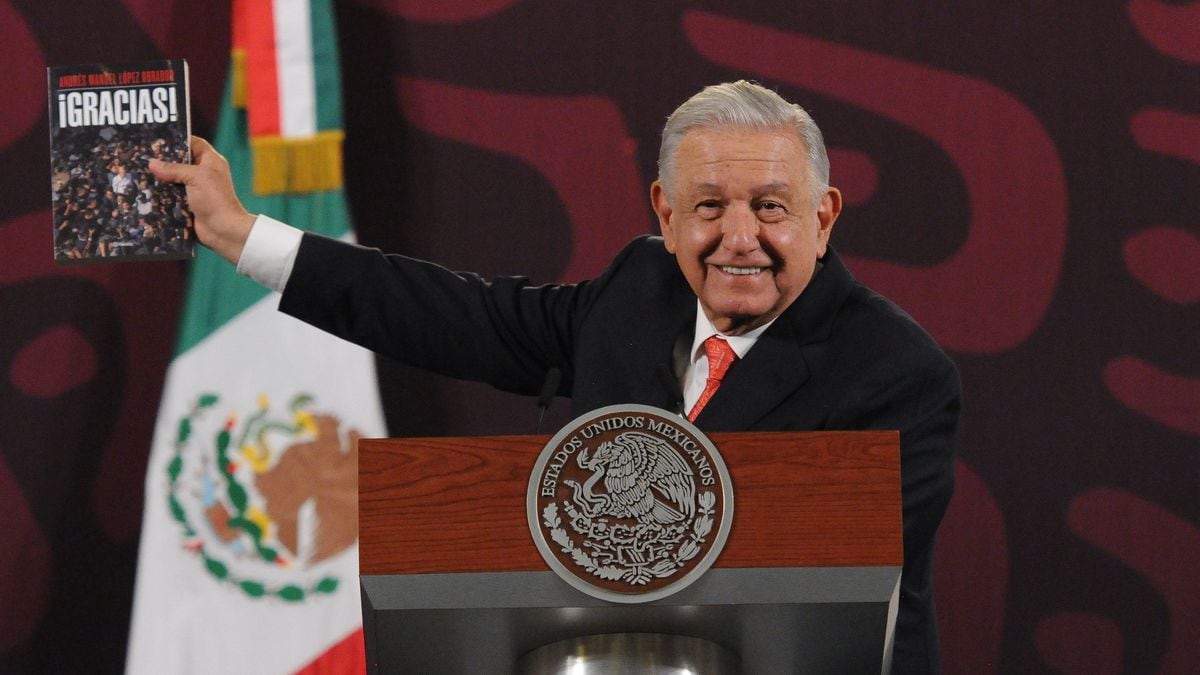The Mexican president, Andrés Manuel López Obrador, on February 4. PRESIDENCY / Reuters
The Government of Andrés Manuel López Obrador is determined to undertake an energy reform that favors the Federal Electricity Commission (CFE), a State company, and in practice lamines private initiative, putting foreign investment at risk.
The revision of the model, which this week received the approval of the Budget Commission of the Chamber of Deputies, has aroused harsh criticism from business organizations and the opposition.
The Chambers of Commerce of Spain and the United States reject the initiative and companies such as Iberdrola have already ruled out new investments in Mexico.
In the eye of the hurricane are not only the economic repercussions of the reform, but also its environmental impact, since the CFE plants are more obsolete.
However, López Obrador has made his plan another flag of rupture with the recent past.
This Friday he came to frame the new law in his speech on the fight against corruption.
“Now the initiative that I sent to Congress to strengthen the Federal Electricity Commission is under debate, which they wanted to disappear to favor private, especially foreign, corrupt companies.
Imagine how much we are going to save if subsidies are stopped for these foreign companies ”, he launched at his morning press conference.
The president charged Iberdrola without providing any arguments other than public aid.
“They are not only bought expensively.
The CFE buys from these companies at high prices, but also subsidizes them.
So, when this legal reform is approved, we are going to save a lot of money and what can we guarantee with that saving, that it does not cost consumers more electricity ”.
The company chaired by Ignacio Sánchez Galán has already discarded, in view of this reform, the possibility of new investments in Mexico after two decades present in the Latin American country.
This week the Spanish Chamber of Commerce (Camescom) regretted through a statement that "the Electricity Industry law would affect business investments made in accordance with the rules and treaties in force."
These investments, according to calculations by the Ministry of the Economy of the Mexican Government, contributed 17.675 million dollars to the country "for the generation, transmission and distribution of electricity."
Most of the European interests correspond to Spain, Italy, France, Germany, Portugal and the Netherlands, recalls institution.
The US Chamber also warns that López Obrador's plan, which it described as "deeply worrying," violates the trade agreement signed between the two countries and Canada.
The revision of the model does not respond, according to the analysts consulted, to an economic design, but rather to an ideological one.
“The only assessment there is is ideological and political.
I don't think there are any other considerations.
The electricity reform is going to be approved and it is going to have very serious consequences for the country ”, assesses economist Valeria Moy, director of the Mexican Institute of Competitiveness (IMCO).
In his opinion, the plan supposes, yes, a break with the mandates of Enrique Peña Nieto or Felipe Calderón, but at the same time a return to a more distant past, when private initiative was not contemplated.
"The Mexico of today is not the Mexico of 1970," he says in reference to the lack of investment in the plants of the Federal Electricity Commission.
"In Mexico, the nationalist presidents who expropriated and nationalized are the great heroes," laments consultant David Shields.
“This has nothing to do with electrical reliability, or technical issues, or the price of electricity, or the environment.
Everything has to do with an ideological prejudice, a political revenge ”, he points out.
"In general, the so-called neoliberal governments, Fox, Calderón, Peña Nieto, never wanted to disappear it," says this expert, who has been observing the evolution of the sector for three decades.
But at the same time, a climate was created in which some CFE officials felt aggrieved by the latest reforms and maintained a pulse with companies, according to their analysis.
The latest reform dates back to 2013, under former President Enrique Peña Nieto, and was controversial.
The legislation required a constitutional reform and was criticized at the time for having passed through both houses of Congress without a debate.
His opponents, including current Energy Secretary Rocío Nahle, rejected the idea that it would benefit all Mexicans, arguing that it would only be companies that would make a profit.
The reform happened in 2013 and by 2015, new companies entered the market, opened for the first time since Mexico expropriated oil from foreign hands in 1938.
Peña's proposal was, however, ambitious.
Its central purpose, according to its proponents, was to improve competition in the energy sector, something that, over time, should translate into lower costs in electricity and fuel.
By allowing companies with a lot of experience to enter Mexico for the first time, the parastatals Comision Federal de Electricidad (CFE) and Petróleos Mexicanos (Pemex) would be forced to improve their processes and prices so as not to lose their dominant position in the market.
It also wanted to bring more revenue to the government because for every barrel extracted from a Mexican oil field, the company had to pay a tax rate.
In addition, it sought to change the country's energy model and promote renewable energy.
And then there was the "Mexican moment," as the promise of economic growth made by the past administration became known.
The Ministry of Energy (Sener) assured that only in 2018, investment commitments to the energy sector by private companies, both foreign and domestic, were going to reach 200,000 million dollars.
The International Energy Agency (IEA), dependent on the US Government, estimated that between 2015 and 2025, the investments generated by the reform would reach between 300,000 and 500,000 million dollars.
If materialized, the energy sector would contribute to the Mexican economy the equivalent of what the country receives in direct foreign investment, in combination of all industries, in one year.
Jobs would be created and the country's gross domestic product would skyrocket.
Those forecasts were very optimistic.
In any case, for the first time in the history of the country, and as of 2019, the state-owned Federal Electricity Commission (CFE) had competitors, private companies that generate electricity and sell it to homes and small businesses.
The arrival of López Obrador to the Government was a radical turn.
In August last year, national media reported that the president asked the sector regulators not to grant permits to private companies to benefit parastatals.
And now private companies are in a limbo of permits not granted by the sector regulator, the Energy Regulatory Commission and the operator of the electricity system, the National Center for Energy Control.
“In general, the private initiative has been able to collaborate well with the CFE.
This government says it is an abuse, a fraud, but it does not denounce it and wants to change the model ”, Shields continues.
López Obrador has made it clear that he will go ahead with his plan despite criticism.
The energy reform may not have delivered on the economic promises made by the previous Administration, yet the hurdles now faced by private investors suggests that Mexico will not know for sure.
Subscribe here
to the
newsletter
of EL PAÍS México and receive all the informative keys of the current situation of this country

/cloudfront-eu-central-1.images.arcpublishing.com/prisa/RAQOXOTAMBD2IU4ZHDL27D22QM.jpg)





/cloudfront-eu-central-1.images.arcpublishing.com/prisa/JFERNTJZKBH3FLT2MVPZ4G6QWA.png)

/cloudfront-eu-central-1.images.arcpublishing.com/prisa/U47VQFQW4FGCBFYMTUPCMC5PKE.jpg)


/cloudfront-eu-central-1.images.arcpublishing.com/prisa/KMEYMJKESBAZBE4MRBAM4TGHIQ.jpg)


